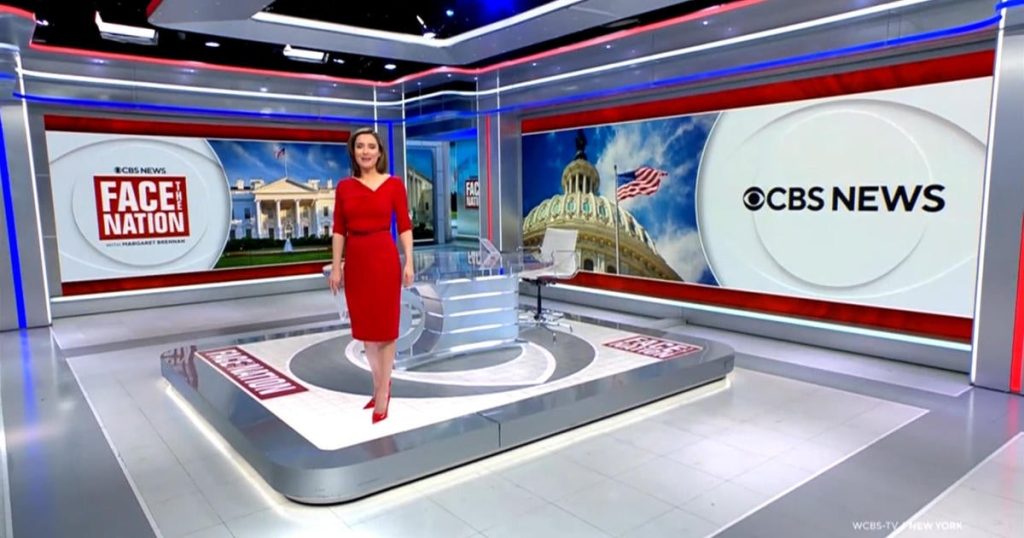Face the Nation with Margaret Brennan: A Dive into Politics and Policy – February 9, 2025
Opening the Conversation: Politics and Policy in Focus
On February 9, 2025, CBS News’ acclaimed program, Face the Nation with Margaret Brennan, delved into one of the most pressing issues in American politics: the Trump administration’s controversial dismantling of USAID (United States Agency for International Development). The show brought together two prominent voices from opposing sides of the political aisle—Republican Rep. Michael McCaul and Democratic Rep. Ilhan Omar—to discuss this pivotal moment in U.S. foreign policy. Alongside these perspectives, a panel of expert correspondents provided in-depth analysis, offering viewers a well-rounded understanding of the implications of this significant policy shift. This episode was not just a debate; it was a window into the intricate interplay of politics, diplomacy, and humanitarian efforts in a rapidly changing world.
The Debate Over USAID: Understanding the Implications
The central theme of the episode revolved around the Trump administration’s decision to dismantle USAID, a agency long regarded as a cornerstone of U.S. foreign policy. Established in 1961, USAID has been instrumental in administering American foreign assistance, focusing on global health, disaster response, and economic development. The move to dismantle it has sparked intense debate, with critics arguing that it undermines U.S. leadership on the global stage and jeopardizes critical humanitarian efforts. Proponents, however, assert that the restructuring is necessary to streamline operations, enhance accountability, and ensure that taxpayer dollars are used more effectively.
Rep. Michael McCaul, a key supporter of the administration’s stance, emphasized the need for reform within USAID. He argued that the agency had become bureaucratic and inefficient, often duplicating efforts with other international organizations. McCaul contended that by consolidating responsibilities and eliminating redundancies, the U.S. could achieve its foreign policy goals more effectively while maintaining fiscal responsibility. His perspective reflects the broader Republican narrative, which often prioritizes cost-cutting and efficiency in government operations.
On the other hand, Rep. Ilhan Omar presented a starkly different viewpoint. A vocal critic of the administration’s move, Omar highlighted the critical role USAID has played in addressing global poverty, providing disaster relief, and supporting democratic institutions around the world. She warned that dismantling the agency would not only harm vulnerable populations but also weaken U.S. influence in international relations. Omar’s arguments resonated with many Democrats who view global aid as a moral and strategic imperative, essential for fostering stability and goodwill abroad.
The Correspondents’ Panel: Insights and Analysis
Complementing the perspectives of Rep. McCaul and Rep. Omar was a panel of seasoned correspondents, each bringing their expertise to the discussion. They explored various angles of the debate, from the historical significance of USAID to the potential consequences of its dismantling. One correspondent highlighted the symbolic importance of USAID as a representation of American values, such as compassion and leadership. Others delved into the practical implications, such as the potential loss of expertise and the challenges of reallocating resources.
The panel also discussed the broader political landscape, including the administration’s overall approach to foreign policy and the reactions of the international community. They noted that while some allies might view the move as a retreat from global leadership, others could see it as an opportunity to fill the void left by the U.S. The correspondents emphasized the complexity of the issue, cautioning against oversimplification and urging policymakers to consider both the immediate and long-term effects of their decisions.
Conclusion: The Road Ahead
As the episode concluded, it was clear that the debate over USAID’s future is far from over. The discussion on Face the Nation highlighted the deep divisions within the political arena, as well as the broader implications for U.S. foreign policy and global stability. While Rep. McCaul and Rep. Omar presented compelling arguments from their respective perspectives, the correspondents’ panel reminded viewers that the reality of the situation is multifaceted and nuanced.
Ultimately, the dismantling of USAID represents a significant shift in how the U.S. engages with the world. Whether this move will lead to greater efficiency and accountability, as supporters claim, or undermine decades of humanitarian work and global influence, as critics fear, remains to be seen. One thing is certain: the decisions made today will shape the course of U.S. foreign policy for years to come, with far-reaching consequences for people both at home and abroad.
Final Thoughts: The Bigger Picture
The episode of Face the Nation served as a poignant reminder of the importance of informed discourse in addressing complex political issues. By bringing together divergent perspectives and expert analysis, the program provided viewers with a comprehensive understanding of the debate surrounding USAID. As the U.S. navigates an increasingly complex and interconnected world, shows like Face the Nation play a vital role in fostering engagement and encouraging viewers to think critically about the challenges and opportunities ahead. The conversation may have ended with the closing credits, but its impact will resonate in the ongoing dialogue about America’s role in the world.












